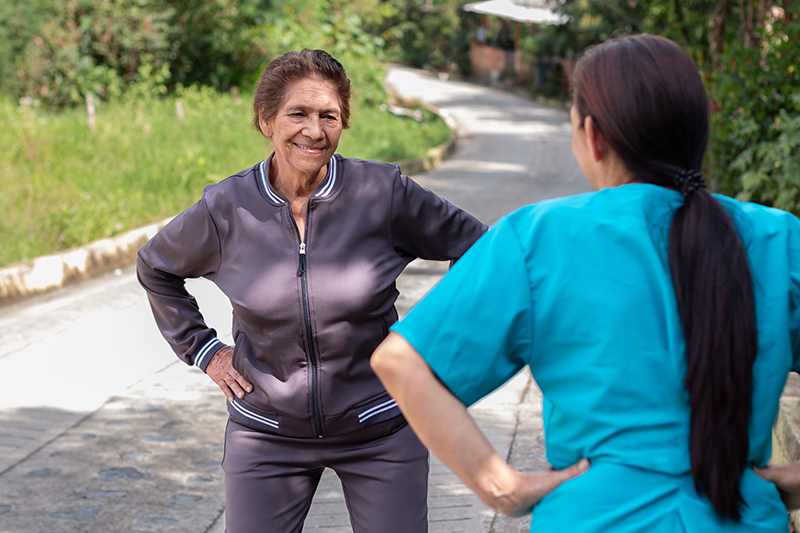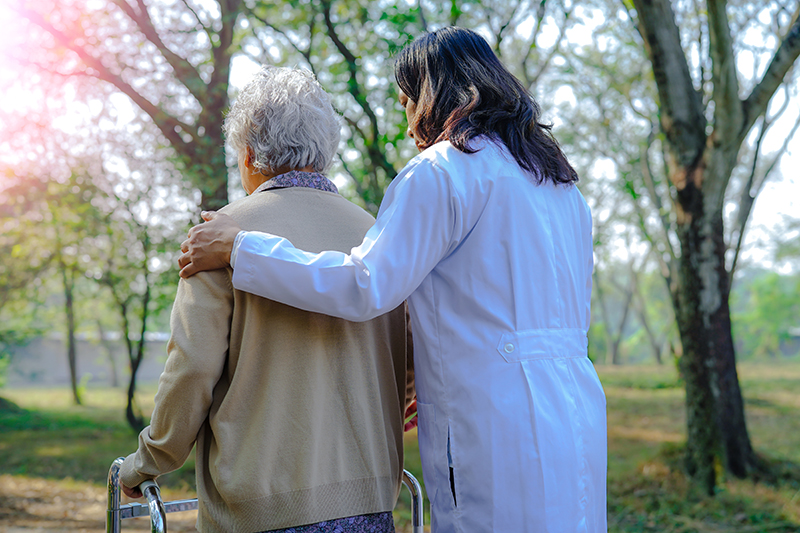How Exercise Helps Reduce Stress and Boost Energy for Caregivers and Clients

Caregiving is both rewarding and demanding, requiring physical stamina, emotional resilience, and mental focus. Whether you’re a professional caregiver or a family member providing care, managing stress and maintaining energy levels is essential—not only for your well-being but also for the quality of care you provide. Exercise for caregivers is a powerful way to reduce stress, increase energy, and support long-term health.
One of the best ways to reduce stress, improve energy, and support overall health is through regular exercise. The good news? You don’t need to commit to hours at the gym to see the benefits. Simple, consistent movement can make a huge difference in your daily life and the lives of those you care for.
The Link Between Exercise for Caregivers, Stress Relief, and Energy
When we think of exercise, we often focus on physical fitness, but the benefits go far beyond that. Regular movement directly impacts mental well-being, helping caregivers and clients alike feel more energized, focused, and emotionally balanced.
1. Exercise Lowers Stress Hormones
Physical activity helps lower cortisol levels, the hormone responsible for stress. At the same time, it increases the production of endorphins, often called “feel-good” hormones, which boost mood and reduce anxiety.
2. Movement Boosts Energy Naturally
It may seem counterintuitive, but expending energy through movement actually gives you more energy. Exercise enhances blood flow, delivering more oxygen and nutrients to your muscles and brain, making you feel more awake and alert throughout the day.
3. Improves Sleep Quality
Many caregivers struggle with irregular sleep due to the demands of their role. Regular physical activity helps regulate sleep patterns, making it easier to fall asleep and stay asleep. Better rest translates to higher energy levels and improved focus during the day.
4. Enhances Mood and Mental Clarity
Caregiving can be emotionally exhausting, but exercise for caregivers is a powerful tool for mental resilience. Studies show that even moderate activity helps reduce symptoms of anxiety and depression while improving cognitive function and clarity.
Simple and Effective Exercise for Caregivers
With busy schedules, caregivers often struggle to find time for exercise. But movement doesn’t have to be complicated or time-consuming. The key is to incorporate small, manageable activities into your daily routine.

1. Walking
- A 10–15 minute walk can reduce stress and improve circulation.
- Try a brisk walk with a client outside for fresh air and relaxation.
- If time is limited, take short walks around the house or office throughout the day.
2. Stretching and Gentle Yoga
- Relieves muscle tension and improves flexibility.
- Great for caregivers who experience back pain or stiffness from lifting and assisting clients.
- Chair yoga or simple standing stretches can be done in just a few minutes.
3. Strength-Building Movements
- Squats, lunges, and push-ups increase muscle endurance—important for lifting and assisting clients safely.
- Use light weights or resistance bands for a quick strength session at home.
4. Breathing Exercises and Meditation
- A few minutes of deep breathing can calm the nervous system and lower stress instantly.
- Try box breathing: Inhale for 4 seconds, hold for 4 seconds, exhale for 4 seconds, hold for 4 seconds—repeat for a few minutes.
5. Fun and Engaging Activities with Clients
- Dance to music for a mood boost and light cardio.
- Do seated exercises together for gentle movement.
- Play a game that encourages light stretching or mobility, such as tossing a ball.
Encouraging Clients to Stay Active
For many older adults or individuals with mobility challenges, staying active can feel overwhelming. However, even gentle movement provides major benefits for both physical and emotional well-being.
Internal and External Resources
Learn more about the benefits of exercise and stress management for caregivers:
- Exercise for Caregiver Health and Well-being – Family Caregiver Alliance
- Caregiver Stress: Tips for Taking Care of Yourself – Mayo Clinic
- Get Moving: Tips for Caregivers – American Heart Association
- Exercise & Physical Activity: Your Everyday Guide – National Institute on Aging
- How Proper Nutrition Supports Energy & Focus for Caregivers – Vitra Health
